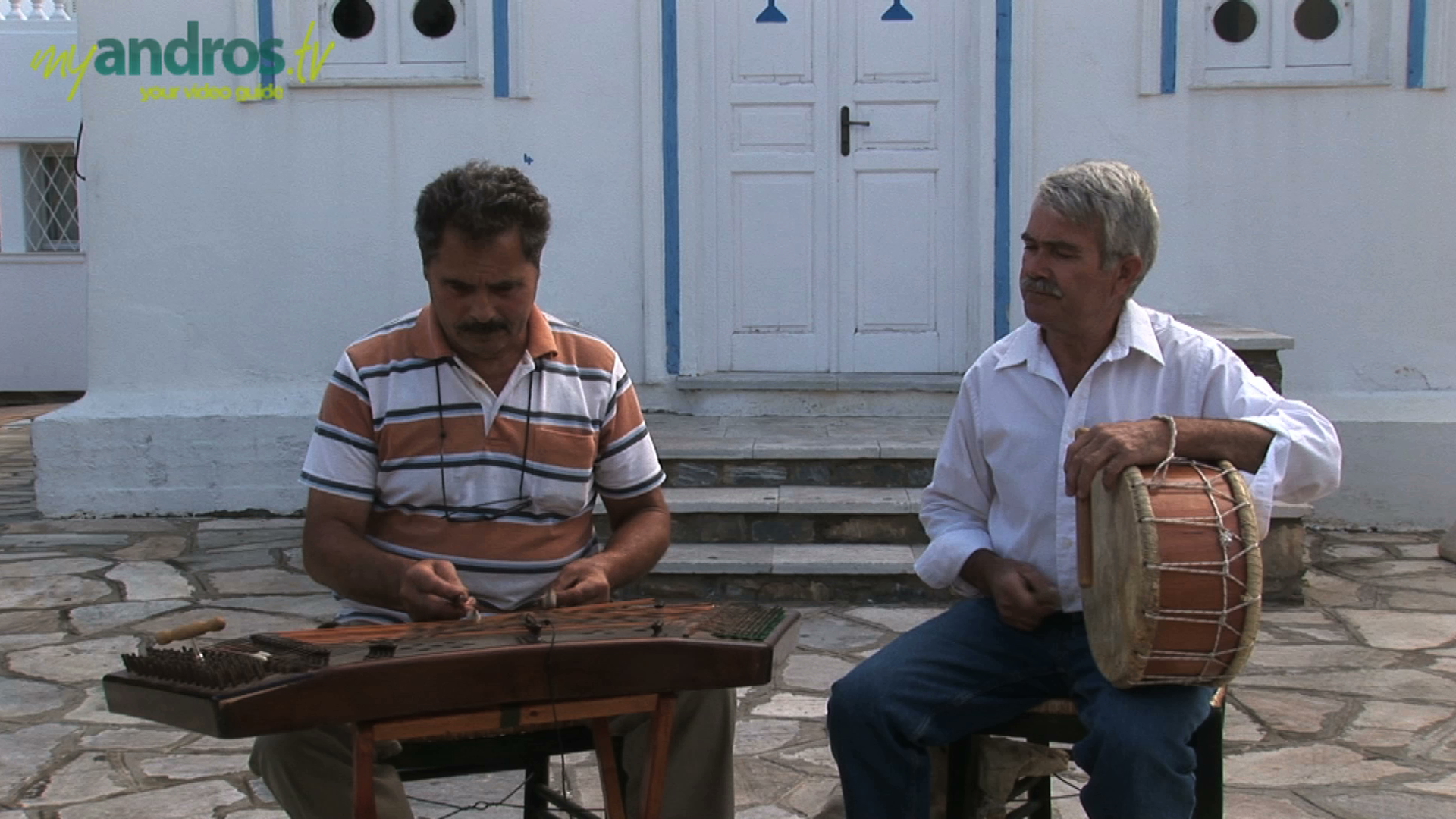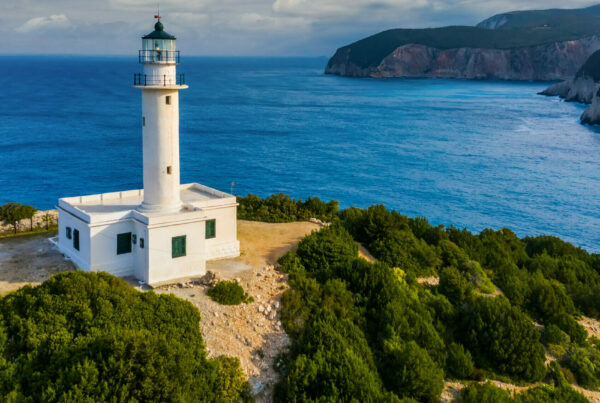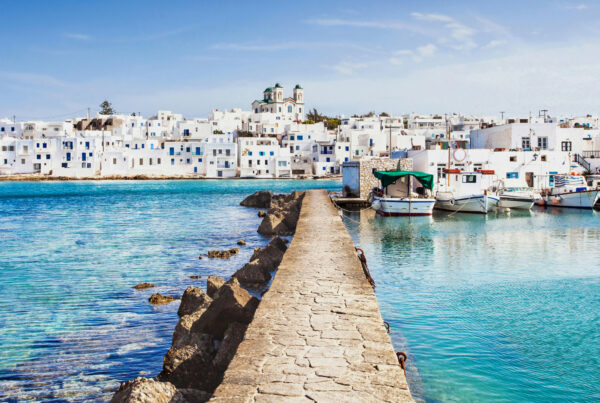Andros Traditional Music | by Nick and Augustis – Track 1
Greek folk music is a beautiful blend of influences from East and West
Music in Greece presents a vast diversity due the creative assimilation by the Greeks of different influences from the Eastern and Western cultures of Asia and Europe. Music is an important aspect of Greek daily life and has a long history going back to antiquity, when poetry, dancing and music were inseparable and held an important place in the everyday life of the ancient Greeks.
It is worth mentioning that the Greek tragedy used music as one of its component elements. In the 400 years of Ottoman occupation, Greek music was influenced by the sounds of the East. Greek music per se got reborn only in the 19th century with the opera compositions of Nikolaos Mantzaros (1795-1872) and Spiros Samaras (1861-1917). This kind of popular songs was actually born in the Greek islands.
Andros Traditional Music | by Nick and Augustis – Track 2
The traditional music of the islands has its roots back in ancient Greece
The Aegean islands have an important folk dance tradition, originating from the dances of ancient Greece, like syrtos, sousta and balos. The lyre is the dominant folk instrument, accompanied by others like the lute, the violin, the sandouri, the gaida (bagpipe) and various types of drums. Particularly in the Aegean, the violin and the Cretan lyre are the protagonists in every ‘glenti’ (feast).
Every island has its own nisiotiko style and its own way of dancing it. Famous performers of the nisiotika songs (the songs of the islands) include Domna Samiou, Mariza Koch, who is credited with reviving this branch of folk music in the ‘70’s, the Konitopouloi family, Yannis Parios and many others.
Andros Traditional Music | by Nick and Augustis – Track 3
Nisiotika is a music genre that is very popular among Greeks
Nisiotika (nisi means island in Greek) is one the most distinctive categories of Greek music and songs, mainly referring to the music created in the islands of the Aegean Sea. Unlike other music types, the nisiotika of Andros and all other Cycladic islands, retain their connection to the folk tradition.
They are light songs with a gentle rhythm and their catchy tone made them popular with the wider public. In the ‘50’s and ‘60’s however the nisiotika songs lost their original appeal but in the ‘70’s managed to find again their way to the Greek hearts and…feet thanks to the fact that many singers and composers decided to support this genre, along with the ‘rebetika’ and ‘laika’, or any other genre that had been neglected or underrated by the sudden urbanization of Greece.
Andros Traditional Music | by Nick and Augustis – Track 4
The rich and wonderful ‘orchestra’ of Greek traditional instruments
Lyre, lute, violin, clarinet, drums, bagpipes and some more exotic musical instruments, like sandouri, askomandoura, tsambouna, form the ‘orchestra’ of the nisiotika songs, the songs of the Greek islands. Among them the santouri probably evolved from harp-like instruments such as the lyre of the ancient Greeks.
The drums, have many different forms and names in Greek traditional music depending on the area of the country, like ‘daouli’, the two headed drum, or toumbano, toumbi and many others. Equally diverse are the names and shapes for the Greek bagpipe, or gaida.
For instance the ‘tsabouna’ is a type of bagpipe that is very popular in many of the islands. It has double pipes that are fingered in the same time, which means that the musician plays two pipes in the same time. The interesting thing is that the two pipes are often somewhat out of tune with each other, creating a very peculiar sound.
Andros Traditional Music | by Vagelis & Kostas – Track 5
Traditional music is deeply embedded in the life of Andriots
Feasting, music and dance were always deeply embedded in the life of Andros’ locals, being means of expressing feelings and emotions, as well as antidotes to adversity and sorrow. Andros’ music and dance tradition is deeply rooted and virtually impossible to trace, both in terms of time and location.
Generally speaking, dance proceedings at celebrations on the island begin with slow-paced styles, gradually liven up with faster, bouncier styles, and eventually wind up with the ballos, a style danced by couples, face to face.
The Aegean islands of Greece are known for Nisiotika songs which are mostly accompanied by lyra, clarinet, guitar, violin but also gaida (bagpipe). Folk dances include the ballos, syrtos, sousta, stavrotos and many other variations of a basic theme.
In the Cycladic islands, the violin is more popular than Cretan lyra, and has produced several respected musicians many of which you can enjoy in the summer ‘panigiria’ or fiestas celebrating mosty religious holidays.
Andros Traditional Music | by Vagelis & Kostas – Track 6
The summer festivals and feasts in Andros bring together families and friends
One big advantage of visiting Greece in the summer months, apart from the wonderful climate and the exquisite beaches, is the chance to experience a ‘nisiotiko glenti’, i.e. a popular gathering with music, dance and food, a must in the islands of Cyclades like Andros.
Held usually in the villages’ main square, the ‘glenti’ or ‘panigiri’ (as a rule associated with the celebration of a Greek Orthodox saint), bring together families, friends and…musicians of traditional Greek music. Ignore the fact that you don’t speak Greek, or that you don’t know the dance steps, drink up your wine, or ‘aspro pato’ as we say in Greece, get up and dance!
Truth be told though, the nisiotika songs, that is the songs of the islands, feature an idiomatic language which is quite evident in these songs and one can fully appreciate them only if they have a basic understanding of the language.
Andros Traditional Music | by Vagelis & Kostas – Track 7
The ‘nisiotika’ songs are studied by musicologists all over the world
A plethora of musicians, others famous, others known only in their hometown, has sprung from the rich fountain that is the Greek traditional music. Every part of Greece, every island, however small, has brought out musicians that have contributed to the preservation and evolution of not only of Greek folk music, but also of traditional musical instruments, a precious treasure of Greek culture.
The composers and singers of the ‘nisiotika’ songs, the songs of the islands, can demonstrate their virtuosity, but also their playful mood, improvising on new musical notes and modes. It is not accidental that musicians and instrumentalists suggest that ‘nisiotika’- as part of the Greek folk songs- are extremely interesting from a technical and musical point of view.
Andros Traditional Music | by Vagelis & Kostas – Track 8
Let the music of ‘nisiotika’ carry you away to the dance floor
The ‘nisiotika’ songs have become an indispensable part of the Greek glenti and panigiri (feasts and celebrations), played in local festivals in the islands of the Aegean Sea, attracting young people who can appreciate the lyricism, tenderness and musicality of these songs.
Listening to this warm hearted, overwhelming and emotionally intense poetic language, it is not hard to imagine the hospitality and good heartedness of the islanders. At the ‘panigiria’ and glentia’, the visitors, especially the foreign ones, always feel welcomed by the locals who treat them to food and wine.
Keep in mind that they won’t take no for an answer when they will try to drag you the music floor, where everybody dances to the tunes of nisiotika. Don’ t be shy, you will easily follow the steps, let the wine do the work!













